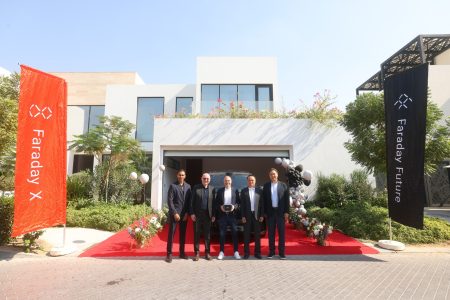Summarize this content to 2000 words in 6 paragraphs in Arabic Stay informed with free updatesSimply sign up to the Artificial intelligence myFT Digest — delivered directly to your inbox.A Saudi Arabian fund has backed China’s most prominent generative artificial intelligence start-up, becoming the only foreign investor in the country’s efforts to create a homegrown rival to OpenAI. Prosperity7, part of the state-owned oil group Aramco’s venture capital arm, has participated in a roughly $400mn investment round in AI start-up Zhipu AI, said two people familiar with the matter. The deal values the Chinese group at about $3bn. Previously, China’s fledgling generative AI sector has been forced by US restrictions to rely on domestic funding, making Prosperity7’s investment the first high-profile example of a foreign backer throwing its weight behind one of the leading four generative AI start-ups. Zhipu and its closest rivals — Moonshot AI, MiniMax and 01.ai — have been dependent on support from government funds and large, local cloud providers. Prosperity7, which manages a $3bn fund, was a minority investor in Zhipu’s round, according to two people. Prosperity7 and Zhipu did not respond to a request for comment.The investment demonstrates Saudi willingness to support an ecosystem that could guard against US dominance in AI. “The Saudis don’t want Silicon Valley dominating this industry,” said one person close to the fund. Washington announced a ban last year on some US investment in China’s artificial intelligence sector and has tightened export controls on the high-end chips used to train and run AI models. Top global tech investors such as SoftBank and Tiger Global backed the previous generation of Chinese AI groups that pioneered surveillance technology, most notably SenseTime, but they have stayed on the sidelines during the generative AI push. “The importance of Saudi Arabia to the Chinese tech ecosystem has grown so much because the US funds aren’t here,” said one tech consultant in Beijing. For Chinese AI start-ups, gaining support from foreign investors offers opportunities to open up new markets for their technology outside their home country, where companies traditionally do not pay well for enterprise services. The latest investment is part of a broader collaboration between Saudi state investors and Chinese technology groups seeking new pools of capital and customers. On Wednesday, Chinese PC maker Lenovo said it had issued $2bn of convertible bonds to Alat, a subsidiary of Saudi Arabia’s Public Investment Fund, its sovereign wealth fund. In exchange, the company will set up its regional headquarters in Riyadh and build a manufacturing plant in the kingdom, the latest example of Saudi investors applying stringent requirements on their tech investments. SenseTime, Tencent Cloud and Meituan are expanding in the country too. Meanwhile, the US has been increasing pressure on countries to stop supporting China’s tech sector through investments or exports of cutting-edge tech. The Abu Dhabi-based AI and investment firm G42 sold its stakes in Chinese tech groups including ByteDance, under pressure from the US, the FT reported in February. After cutting Chinese hardware out of its systems, G42 gained a $1.5bn investment from Microsoft. Meanwhile, the Saudis are not immune to Washington’s influence. Amit Midha, the chief executive of Alat, this month told Bloomberg that he would “divest” from China if forced to do so, as the kingdom aims to build a domestic semiconductor industry. “The US is the number one partner for us and the number one market for AI, chips and semiconductor industry,” he said in the interview. Zhipu is the largest Chinese generative AI start-up by number of staff, with more than 800 employees in its headquarters in the Haidian district of Beijing. It previously raised money from Alibaba Cloud, Tencent and Meituan and has the support of state investors, including the National Social Security Fund. Its main business is selling an “AI-in-a-box” product to companies wanting to use its large language model with AI processors and other hardware on their own premises, thereby ensuring greater data protection.In May, Zhipu founder Tang Jie, a former Tsinghua University computer science professor, appeared on stage at a Prosperity7 investment forum in Beijing. The forum featured a sword dance performance by humanoid robots wearing the long-sleeved traditional Arab robes known as thawbs. Prosperity7 has investment teams in Saudi Arabia, China and the US. Its team in China has expanded to about a dozen over the past four years, according to its website and LinkedIn, in contrast with other global funds that have closed down or cut back their operations there.
rewrite this title in Arabic Saudi fund backs prominent Chinese generative AI start-up Zhipu
مقالات ذات صلة
مال واعمال
مواضيع رائجة
النشرة البريدية
اشترك للحصول على اخر الأخبار لحظة بلحظة الى بريدك الإلكتروني.
© 2026 جلوب تايم لاين. جميع الحقوق محفوظة.








